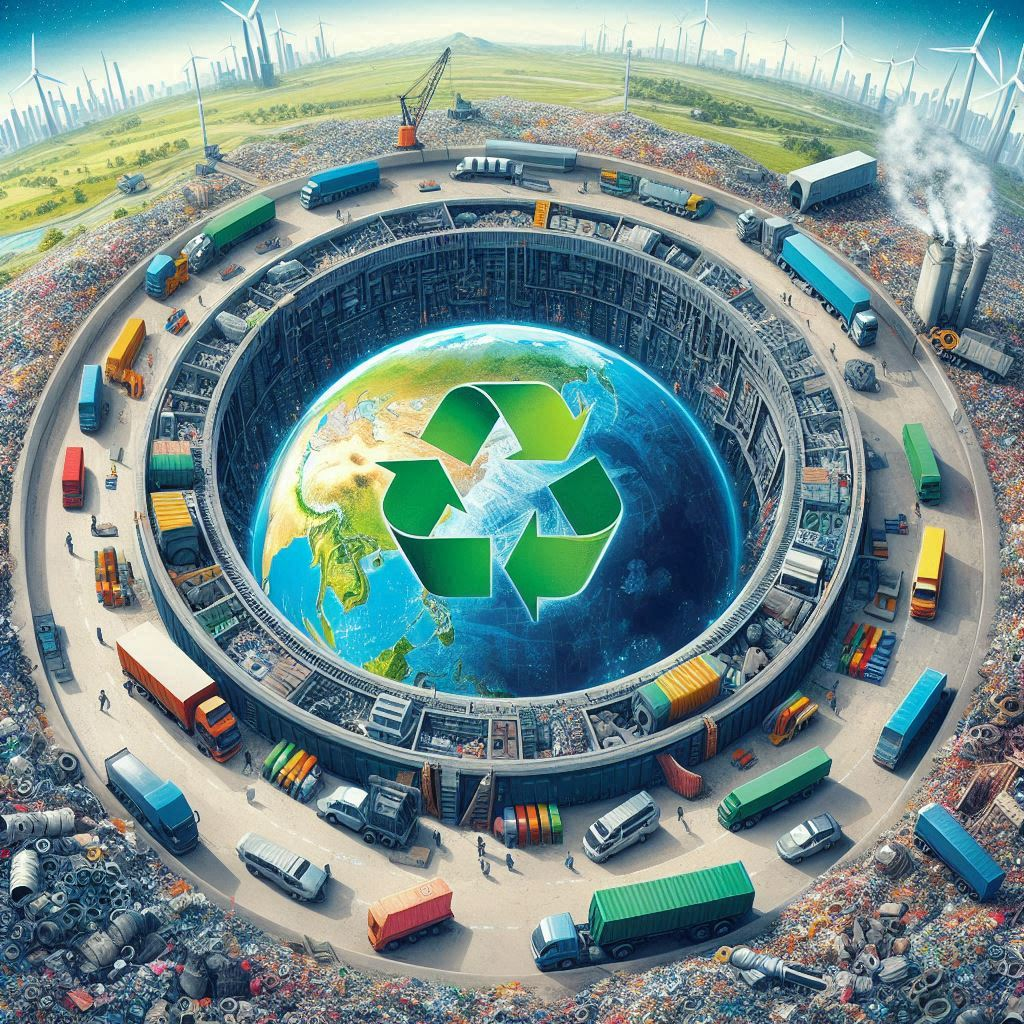Pakistan’s 49.6 million tonnes of waste offer a chance for a circular economy via energy, recovery, and recycling.
In a nation grappling with waste management issues, Pakistan’s annual generation of 49.6 million metric tonnes of solid waste has been identified as a significant opportunity for promoting a circular economy through waste-to-energy conversion, resource recovery, and recycling.
This potential was highlighted during a consultative workshop on ‘Integrated Solid Waste Management in Pakistan’, organized by the Sustainable Development Policy Institute (SDPI) in collaboration with the Ministry of Climate Change’s Living Indus Initiative.
The workshop emphasized the necessity of multi-sectoral and stakeholder interventions to address the complex issue of waste management. Additional Secretary of the Ministry of Climate Change and Environmental Coordination, Muhammad Farooq, stressed the importance of developing viable projects that not only manage waste but also create a sustainable economy providing livelihoods and fostering green entrepreneurship within communities.
“Pakistan produces 5 billion plastic bags annually, which frequently end up in water bodies, drains, and rivers,” Farooq stated. He noted that the federal government has banned the single-use of polythene and plastic bags in response to this environmental challenge.
Farooq highlighted the Living Indus Initiative, a government project aimed at restoring the Indus River, Pakistan’s largest river, from plastic pollution, contamination, degradation, and habitat loss. However, he also pointed out the financial challenges, noting that the project requires around $6 billion to be fully implemented.
Dr. Abid Qaiyum Suleri, Executive Director of SDPI, explained that the forum was convened to provide in-depth knowledge on the integrated waste management landscape in Pakistan. He mentioned that SDPI serves as the secretariat for an alliance focused on the circular economy, and is actively developing practical suggestions for waste management in the country.
Humaira Jahanzeb, Team Lead for the Living Indus Initiative, delivered a comprehensive presentation on the project. She emphasized the critical importance of the Indus River, noting that it supports 90% of Pakistan’s population and three-quarters of its economy, and irrigates 80% of the country’s arable land.
Humaira Jahanzeb described the Living Indus Initiative as a collaborative effort between the Ministry of Climate Change and the UN, designed to restore the ecological health of the Indus River through 25 strategic interventions requiring $11-17 billion over the next 5-15 years. These interventions focus on key areas such as governance, pollution control, financing, livelihood creation, and public awareness.
Dr. Shunichi Honda, Programme Officer at the International Environmental Technology Centre, Economy Division, UNEP, highlighted the global dimension of waste management, noting its significance in everyday life. He announced UNEP’s upcoming launch of the global e-waste monitor, which will aid in decision-making and policy formulation through scientific data, along with an Asia-specific e-waste monitor.
Zainab Naeem, Associate Research Fellow at SDPI, underscored the urgency of managing the 49.6 million metric tonnes of waste generated annually in Pakistan. She pointed out that while the country has sufficient legislation, it lacks a national institution dedicated to waste management.
Sumaira Gul, CEO of the Dr. Akhtar Hameed Khan Memorial Trust (AHKMT), shared insights on waste management practices. She emphasized that the challenge lies not in waste collection but in its management. She introduced a South Asian resource recovery model piloted in 2014, which has been successfully scaled up to ten sites and could be replicated under the Living Indus Initiative.
The workshop concluded with a consensus on the need for integrated waste management solutions that not only address environmental concerns but also promote economic sustainability and community development. Through collaborative efforts and strategic interventions, Pakistan can transform its waste management challenges into opportunities for a greener, more sustainable future.
